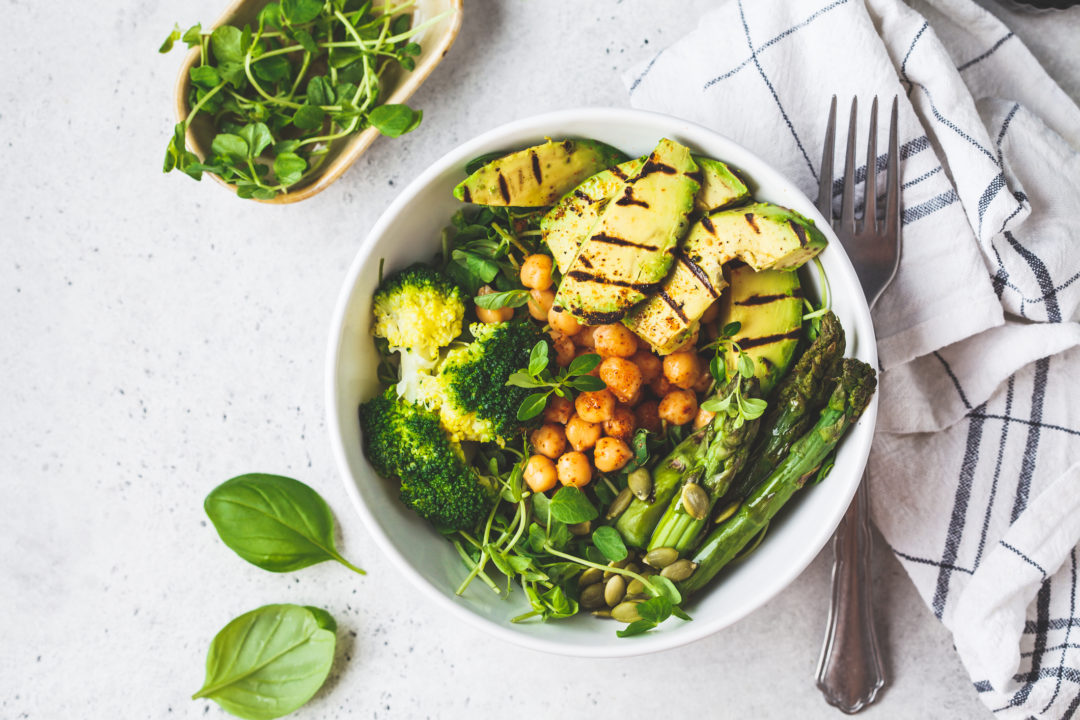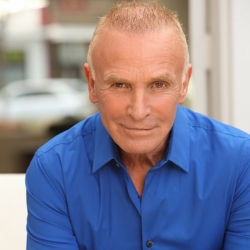Keto has a lot of benefits for many people—advantages I’ve written about elsewhere (including in this magazine). And Dr. Cole is an enthusiastic promoter of keto precisely because of those many proven benefits. But Dr. C noticed a few things that disturbed him about the way some people were approaching keto—not all people, obviously, but enough to worry him.
Many were so concerned with macros—the percentages of protein, carbs, and fat in their diets—that they were paying no attention to micros—vitamins, minerals, and other indicators of food quality. (Remember, it’s possible to get into ketosis on junk food.)
Related: Troubleshooting Keto
Many of the foods Dr. Cole saw his patients consuming might be “keto-friendly,” all right, but being keto-friendly doesn’t necessarily make a food good for you. (We’re talking to you, pro-inflammatory oils like corn, canola, soybean, safflower, and other “vegetable” oils we’ve been told to consume more of.)By the same token, Dr. Cole noticed that many of his patients were staying clear of keto because they believed it was all about eating meat and saturated fat. And he noticed similar misconceptions even among those committed to keto diets—the notion that vegetables had to be significantly limited, for example. “I have seen countless well-intentioned keto eaters grow fearful of consuming vegetables. Sadly, they are unwittingly missing out on the phytonutrients and prebiotic foods needed for a healthy gut microbiome,” Dr. Cole writes.
Dr. Cole also noticed that many keto-eaters consume a fair amount of dairy. While he doesn’t believe there’s anything inherently wrong with dairy (or meat, or fish, or eggs for that matter), he does note that dairy is one of the most common food allergens. Inflammation from dairy allergens or from lactose intolerance affects millions of people and can lead to symptoms ranging from gas and bloating to joint pain and eczema.
Related: Why Do Low-Carbers and Keto Dieters Like Intermittent Fasting So Much?
Finally, some people just don’t feel as well when they eat a lot of meat. Rightly or wrongly, for better or for worse, for ethical/moral/spiritual/metabolic/digestive reasons, they feel better on a meat-free (or relatively meat-free) diet.So Dr. Cole put together a diet plan he calls Ketotarian. He writes: “Ketotarian marries the best of low-carb diets and a plant-based way of eating, while avoiding the common pitfalls that I have seen countless well-intentioned people make with both these diets.”
Let me say that Dr. Cole is the least doctrinaire vegan I’ve ever encountered. He doesn’t traffic in “vegan science”—you won’t hear him repeat nonsense like “there’s plenty of vitamin B-12 in plant foods!” nor will he try to equate plant-based omega-3s with the kind that come from fish. And speaking of fish, he’s a big fan of the wild-caught variety (hardly a typical vegan menu choice).
Related: Keto Mania: Nearing an End–or Still a Top Trend? Food Investors Weigh In
Dr. Cole also doesn’t trash the usual whipping boys of veganism: animal products and saturated fat. He’s actually not opposed to either. “I don’t think that saturated fat should be demonized, because I don’t think it’s bad for us,” he told me when I interviewed him for the new edition of my book, Living Low Carb (coming in January, 2020). And there are plenty of saturated fats in Ketotarian, notably coconut oil and even organic ghee.While the recipes in Ketotarian are mostly vegetarian or vegan, Dr. Cole is a big fan of eggs, wild-caught salmon, and even—don’t fall off your chair, now—the occasional grass-fed burger! (Apparently, he’s gotten quite a bit of flack on social media for this, particularly from what we’ll politely refer to as the “militant vegan fundamentalist” crew.)
So, what’s up with this guy?
His own particular vegan journey offers a clue. Dr. Cole was a strict vegan for years. “I had to come to grips with the fact that I was eating healthfully but wasn’t feeling healthy. Something was missing.” He is now what some cynics might refer to as a “recovered vegan” (my words, not his).
Related: Mediterranean-Keto Could Reduce Risk of Alzheimer’s, Study Suggests
Dr. Cole has found that many vegans are actually “carbatarians,” living on bread, pasta, greens, and vegan desserts, pointing out that all too often, grains become the staple of the modern plant-based diet. “And if they aren’t breadheads, they’re depending too heavily on soy for their protein, which is typically genetically modified and always high in estrogens,” he explains. “I see many vegans and vegetarians with wrecked digestion and declining health, clinging to their zealous belief that this is the way people should eat and live.”Yet—according to Dr. Cole—plant-based diets can, when done correctly, provide you with the nutrients you need to thrive. While Ketotarian is definitely plant-based—and would be considered keto-vegan—it also uses what Dr. Cole calls “a few key food medicines” to give people a little more variety of healthful fats and provide some nutrients that are next to impossible to get from vegan diets unless you supplement. Dr. Cole includes in this list of “food medicines” eggs (particularly egg yolks), grass-fed ghee, and wild-caught fish and shellfish. Because the diet is not dogmatically vegan, it should probably be referred to as a plant-centric diet, which is what it really is.
One of the reasons that I personally have a warm spot for Dr. Cole’s book is that it shares with my own program, The Metabolic Factor, an emphasis on the switch from a sugar-burning metabolism to a fat-burning metabolism. That’s one of the main benefits of the diet, one that Dr. Cole emphasizes throughout the book. Having a fat-burning metabolism is known as being “keto-adapted,” or “fat-adapted”—and it’s the holy grail of a healthy metabolism.
Related: Living A Plant-Based Life
“Becoming fat- or keto-adapted not only gives you sustainable energy throughout the day for your brain and metabolism, but also crushes food cravings,” Dr. Cole writes. “In terms of energy for your body, fat is like a log on a fire: slow-burning, and long-lasting.”Considering the increasingly partisan mood in nutritional politics, what Dr. Cole has done here is truly remarkable—he’s managed to put together a mostly vegan program that does not trash meat or saturated fat, nor indulge in vegan science, while making a strong case for combining the best of the plant-based world with the proven benefits of keto.
I say “Bravo.” If I were ever to decide to go vegan, this is the program I’d follow.
________________________________________________________
Adapted from the forthcoming book, Living Low Carb- Revised and Updated (Sterling Press, January 2020)
Note: The views and opinions expressed here are those of the author(s) and contributor(s) and do not necessarily reflect those of the publisher and editors of WholeFoods Magazine.










